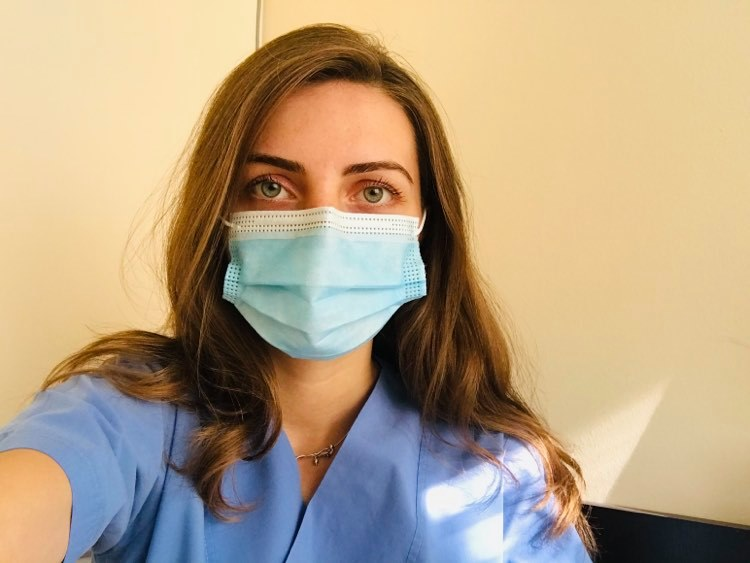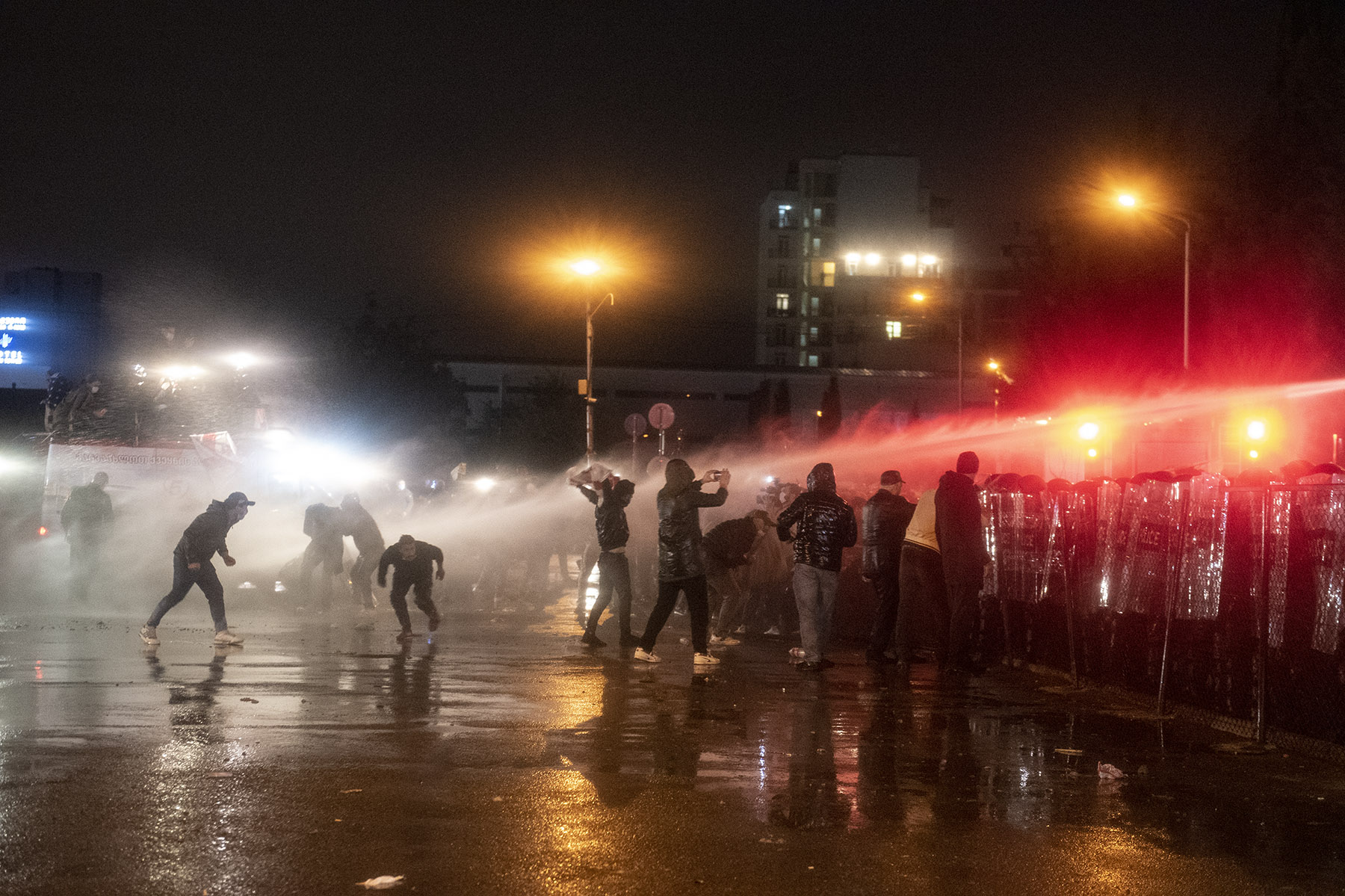
Despite new restrictions including a curfew and mask mandate, the government has so far failed to halt rising deaths and case numbers of COVID-19. Amidst the pandemic, protesters have also continued to gather in large crowds, often ignoring safety measures.
Seventy-eight people died due to COVID-19 in the past 48 hours in Georgia marking a new record since the pandemic began.
There have been almost daily reports on social media from patients and their families appearing to show Georgia’s healthcare system failing to cope.
The story of Mariam Kakauridze, whose parents had COVID-19 and died within an hour of each other, has resonated with public criticisms of unanswered emergency calls, late ambulances, and overbearing bureaucracy.
Another controversial case was Natia Jaiani, 39, who had no pre-existing conditions. She died in a medical centre in Batumi due to ‘late treatment’, according to the clinic.
Health Minister Ekaterine Tikaradze has responded to the criticism by insisting that the health system was ‘taking responsibility for all these facts’, but that ‘when there are complicated cases and late reported cases, doctors can hardly take responsibility’.
Tatuli Shervashidze a junior doctor from the cardiology department of the Batumi referral hospital, who recently recovered from COVID-19 herself, told OC Media that the situation in Batumi, one of the most heavily affected cities, was worsening and many were not being hospitalised in time.
‘A lot of patients need hospitalisation at this point but it’s hard for them to get into clinics that are overloaded. So are the ambulances and hotlines. Patients from Adjara are being moved to other regions already’.
‘At this point, once a patient manages to be admitted to the clinic we don’t have a shortage of ventilators, but if it goes on like this, I’m not sure what will happen’.
Shervashidze said the system was also becoming overloaded because people who did not need hospitalisation were showing up out of panic.
‘All the news about young people dying makes them worried that they will be the next one. So they fight very hard to get to the clinic’, she said.
Doctors vulnerable and underpaid
On 6 November the head of the National Centre for Disease Control (NCDC), Amiran Gamkrelidze, denied that the health system was collapsing. He said that Georgia had 17,000 free hospital beds as well as 20,000–21,000 doctors and 18,000 nurses. However, he also announced the mobilisation of medical students in their fifth and sixth years as well as the possibility of enlisting retired doctors and dentists.
The Human Rights Education and Monitoring Center (EMC), a local rights group, criticised the government’s management of medical staff on Wednesday, expressing concerns over their safety.
‘The medical sector can’t cope with the growing wave of infection’, they stated, adding that the mobilisation of additional medical resources ‘raises questions over whether the government could have predicted the scale of the second wave and effectively used the time gained’ during the first wave.
Working 24-hour shifts, doctors have also reported shortages of protective equipment.

‘When we have, for instance, a new group of patients, several of us enter at once to take the decisions together instead of going in and out too many times’, Nino Kvirtia, a resident doctor from New University clinic told OC Media.
Nurses, who have to spend almost the entire shift in the proximity of the patients receive around ₾500 ($150) per month. Job offer shared recently in a text message by the governmental employment agency Worknet.ge offered ₾3 ($0.9) per hour during shiftwork, triggering criticism online.
The Solidarity Network has among the groups to condemn the treatment of the medical staff.
Nona Zandarashvili, a nurse and the chair of the Solidarity Network Nurses Union told OC Media that nurses had to work for up to 32 hours straight, making up for the shifts of infected staff.
‘After those 32 hours some go home and some sleep on the spot, then get up and start another shift’.
Zandarashvili said the union had been approached by the staff of one clinic where nurses have had their salaries cut.
‘They are working 24-hour shifts and they’ve been told by the management they will receive a salary for only 16 hours, ₾30 ($9) [per shift]’, she said. She also says that nurses, including herself, are receiving salaries three months late, and are only just going to receive their August salaries now.
According to Zandarashvili, the directives to use protective equipment sparingly has even prevented nurses from tending to their primary needs, such as using the bathroom or drinking a cup of coffee not to collapse.
She said that COVID-19 training for nurses has also been nothing more than a symbolic show of slides, and even this many could not attend due to the excessive number of patients.
‘The system was never ready. We don’t know how much longer we’ll be able to stand’.
Protests amidst a pandemic
Batumi and Tbilisi account for more than a third of the 3,120 cases confirmed on Thursday. Meanwhile, recent protests, organised by the country’s major opposition parties against the result of 31 October’s parliamentary elections, has been attracting large crowds in both cities.
On the night of 8 November, thousands of protesters marched over 10 kilometres from parliament to the Central Election Commission (CEC) building, later being dispersed by water cannons.

The country’s top doctors, Tengiz Tsertsvadze and Amiran Gamkrelidze, refrained from commenting the use of cold water on the protest in November. However, Public Defender Nino Lomjaria wrote on Facebook that the response was ‘unlawful’ and urged the police to ‘stop using disproportionate force’.
The following night, over 100 anti-government protesters stayed in front of the parliament in defiance of a curfew in force between 22:00–05:00, with activists from Shame! movement protesting specifically against the regulation.
They along with opposition parties have suggested that the government introduced the curfew to silence election-related protests, not to mitigate the coronavirus outbreak in the country.

The Institute for the Development of Freedom of Information (IDFI) underlined in a statement on 9 November that the government had committed to pursuing ‘targeted responses’ to the outbreak and respecting freedom of assembly as recently as on 6 November, only a day before the curfew was announced.
The opposition has vowed to hold further protests.
Batumi doctor Tatuli Shervashidze warned that these gatherings have the potential to spread the virus further. ‘We will witness the result of those protests in two weeks’ she said.
This article was prepared with support from the Friedrich-Ebert-Stiftung (FES) Regional Office in the South Caucasus. All opinions expressed are the author’s alone, and do not necessarily reflect the views of FES.






